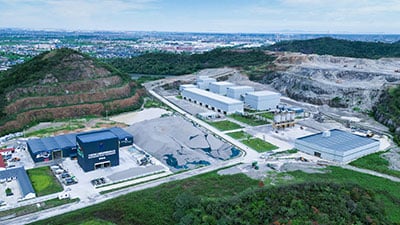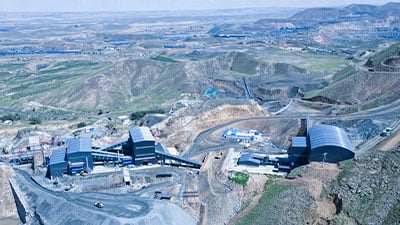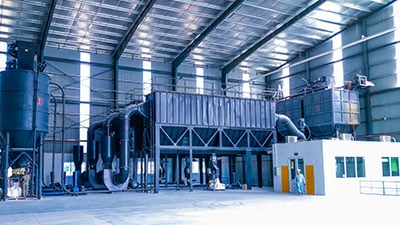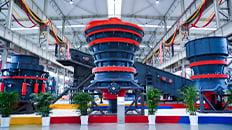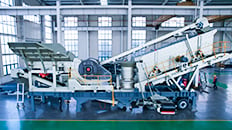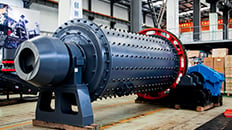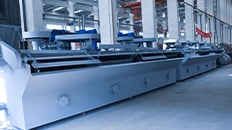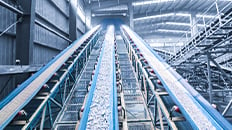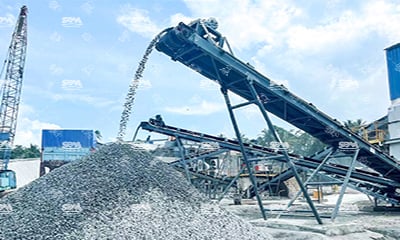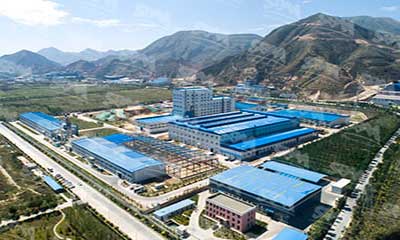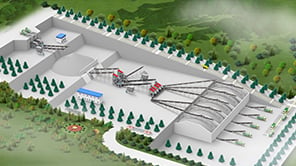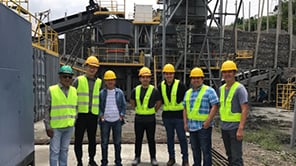Summary: It’s understood that petroleum coke, except for being applied to aluminum metallurgy & graphite manufacturing industry, can also be made into petroleum coke pow
It's understood that petroleum coke, except for being applied to aluminum metallurgy & graphite manufacturing industry, can also be made into petroleum coke powder through powder production process to substitute light oil, heavy oil, natural gas, etc. to serve as the fuel of industrial kiln. Calorific value of petroleum coke powder is about 8300-8600kcal/kg, while the calorific value of heavy oil is 9500-10000kcal/kg. Thus calorific value of 1.1-1.2t petroleum coke powder is equivalent to that of 1t heavy oil.
Since the petroleum coke powder is applied as fuel more and more widely in the market, an investment boom of petroleum coke powder production has been aroused. According to the introduction of milling engineer of Shanghai Shibang, petroleum coke powder production is to manufacture petroleum coke powder materials of certain specification through such process as crushing, forced grinding, etc. to meet the demands of high calorific value, low impurity (ash) content & low-sulfur combustion characteristic of the glass kiln and CWS kiln. Petroleum coke powder production process mainly contains the following several aspects:
1. Crushing & screening: before the precalcination, green coke shall be pre-crushed into particles with the size less than 40mm and then crushed again after coarse screening. In addition, iron removal shall also be carried out.
2. Calcination: to improve the density & intensity of petroleum coke raw materials and remove the moisture in such raw materials, calcination processing shall be carried out for the crushed green coke. Calcination refers to high-temperature dry distillation of the produced coal and various cokes of graphite products in the condition of isolating form the air, so that raw materials can have a series of great changes from elementary composition to tissue structure.
3. Grinding: size of the petroleum coke through crushing by the crusher is no more than 5mm. Then such petroleum coke shall be ground into powder particles which can pass the sieve of 200 meshes and meet the demand of industrial combustion by MTW European-type mill.
4. Material collection: materials after grinding will be sent to powder concentrator for grading by air flow of the fan. With the function of impeller of the powder concentrator, materials not complying with the requirement on fineness will fall into the grinding chamber for grinding again, while materials complying with the requirement will enter into cyclone powder collector along with the air flow through pipelines for separation & collection, and then become the finished product of powder after being discharged by discharge device. Air flow after the separation will enter into the fan through return duct at upper end of the cyclone powder collector. It is a closed circulation system and works in the condition of positive & negative pressure.
Since the materials ground in grinding chamber contain certain moisture, heat generated during the grinding will cause gas evaporation & expansion, which will change the system's air flow rate. In addition to the leakproofness of the junction of feed inlet and various pipelines, the entering of external air makes air flow in the system lose balance. Therefore, lead the surplus air into bag-type dust remover by virtue of exhaust pipe valve at air outlet of the fan, and then discharge the surplus air after purification to realize environment-friendly production while adjusting air balance of the system.
5. Material storage: pack the collected petroleum coke powder or put such powder into the tank car for transportation.
SBM is a domestic renowned grinding equipment manufacturer. MTW series European-type mill developed by it according to characteristics & standards of petroleum coke powder production can meet the requirement on petroleum coke powder production to the greatest extent. The equipment is featured by good stability, long service life of quick-wear parts, low power consumption and low pollution, and can reduce the enterprise's production cost.

